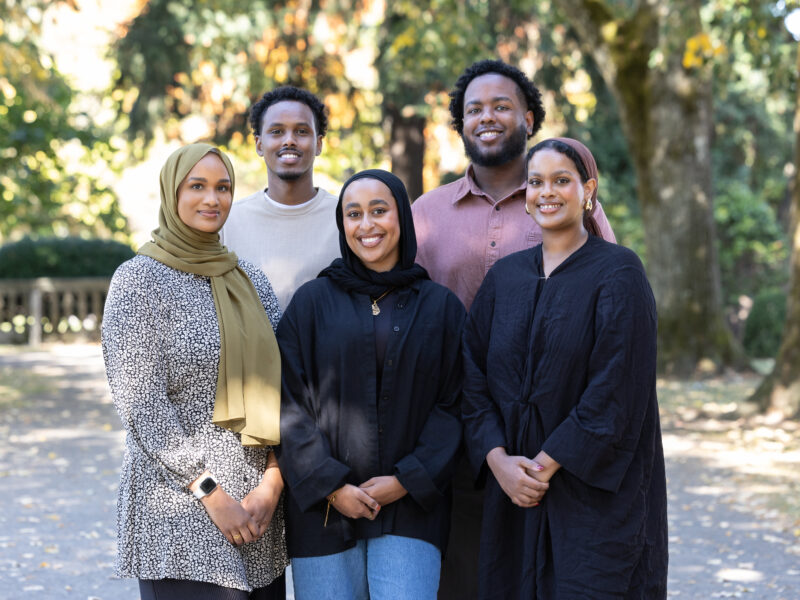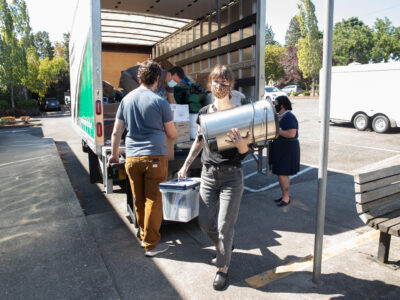Workforce stabilization grants
'All the trainings have set us up for success'
For smaller nonprofit service providers like Somali Empowerment Circle, having enough funding to both pay their employees and offer professional development opportunities isn’t always possible.
“As a small organization, we don’t have a ton of funding, so most of our funding goes to either overhead costs or just paying our employees,” said Hanna Osman, its co-director.
Until recently, employees who wanted to develop professionally would have to pay out of pocket for trainings and educational opportunities, Osman said.
Workforce stabilization grants support providers
That changed this year, when Somali Empowerment Circle became one of the 61 organizations that received flexible organizational health grants from the Joint Office of Homeless Services designed to support the local homeless services workforce. A partnership between the Joint Office and United Way of the Columbia-Willamette allowed $10 million of Supportive Housing Services funding to be distributed expediently to providers to invest into their staff.
Nonprofit homelessness and housing service providers have struggled with stagnant wages, high vacancy rates and other recruitment challenges amid unprecedented demand for their services and in the aftermath of the COVID-19 pandemic. A Joint Office of Homeless Services wage study last year found only 31% of surveyed employees at homeless services providers felt their compensation allowed them to take care of their basic needs. Half of employees surveyed said they were likely to look for a new job within the next year.

Grants provide flexible funding tailored to providers
All homeless service providers currently contracted with the Joint Office were eligible to apply. In their applications, providers described how they intended to use the funds to support and strengthen workforce recruitment and retention efforts, along with their current vacancy and retention rates.
Because workforce challenges vary significantly organization to organization, the flexible funding empowered organizations to determine the best use of funds to meet their particular needs. Agencies used the grant funds for a range of purposes, including employee bonuses, hiring more staff, and wellness opportunities.
Somali Empowerment Circle uses grant for professional development
For Somali Empowerment Circle, the funding was put toward professional development opportunities, which Osman says has been especially important for their housing advocacy work. The organization helps recruit landlords to participate in programs providing housing to people leaving homelessness.
As an organization without dedicated professional funding, receiving the grant “really helped us tremendously, especially in our housing advocacy and our organizational goals,” she said.
One employee at the organization was able to use the funding to get a project management certificate from Portland State University. The funding has also paid for staff trainings on topics like trauma-informed care and culturally specific education. And one staff member, Ahlam Osman, pursued professional coaching to develop her advocacy skills.
“[My coach] helps me advocate for myself, and with communication and negotiation — that’s been really helpful for our housing program, where we have to speak directly with developers and landlords,” Ahlam Osman said. “And even speaking with folks from the County and from the government, it’s really important to have those communication and advocacy skills.
“That’s been really helpful for me in the housing work that we do.”
Trainings helpful for small, culturally specific organizations
Hanna Osman said these professional development trainings are especially important for small, culturally specific organizations like Somali Empowerment Circle.
“There’s just a little bit of imposter syndrome. We don’t always know how to communicate with larger agencies because of that power dynamic,” she said. “All the trainings have set us up for success. We are just so much more confident in navigating this space.”





